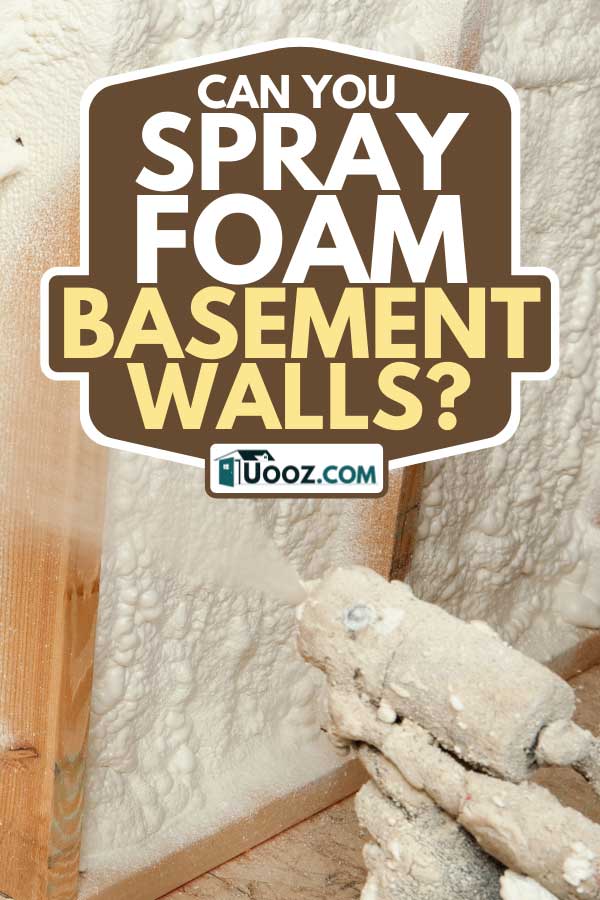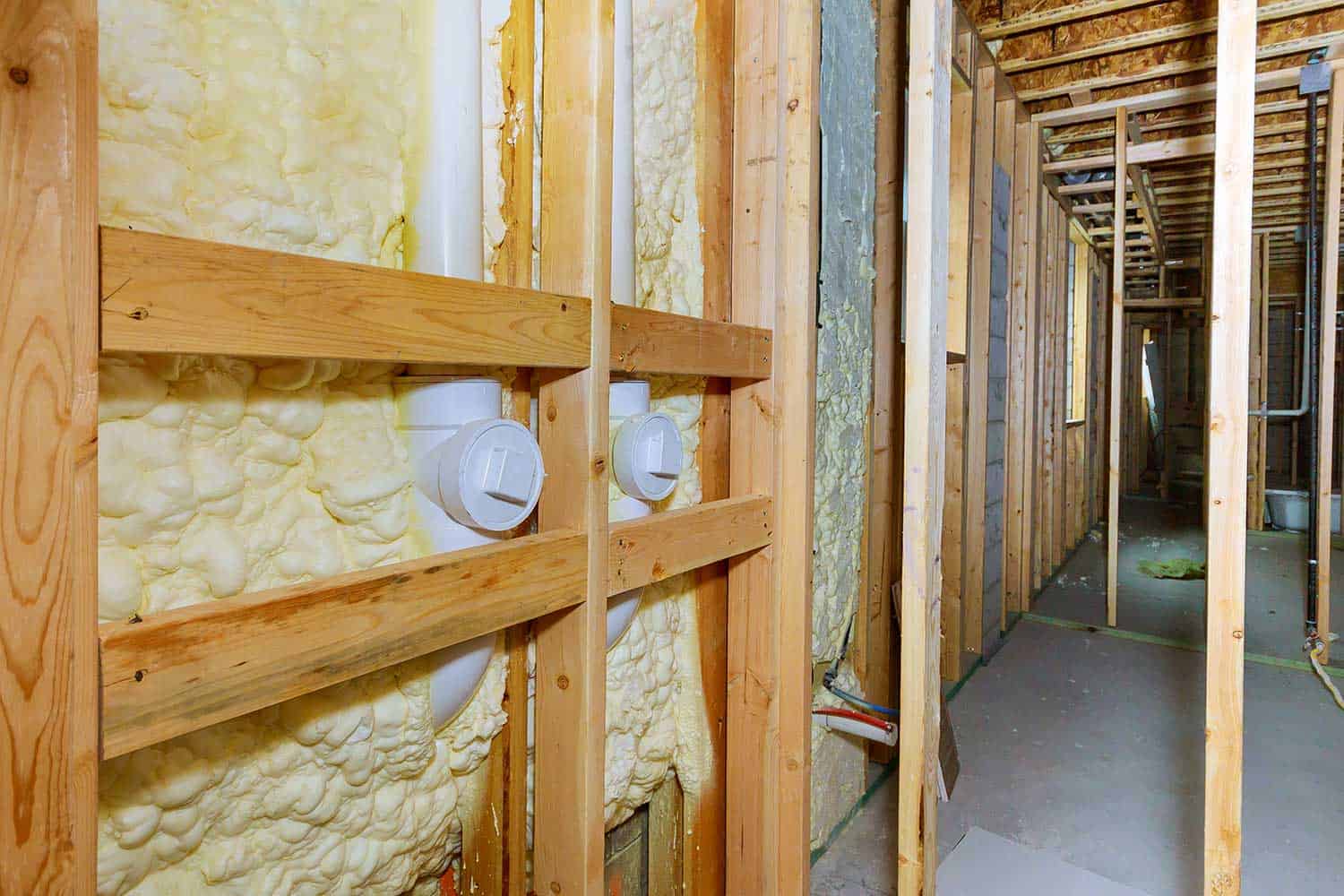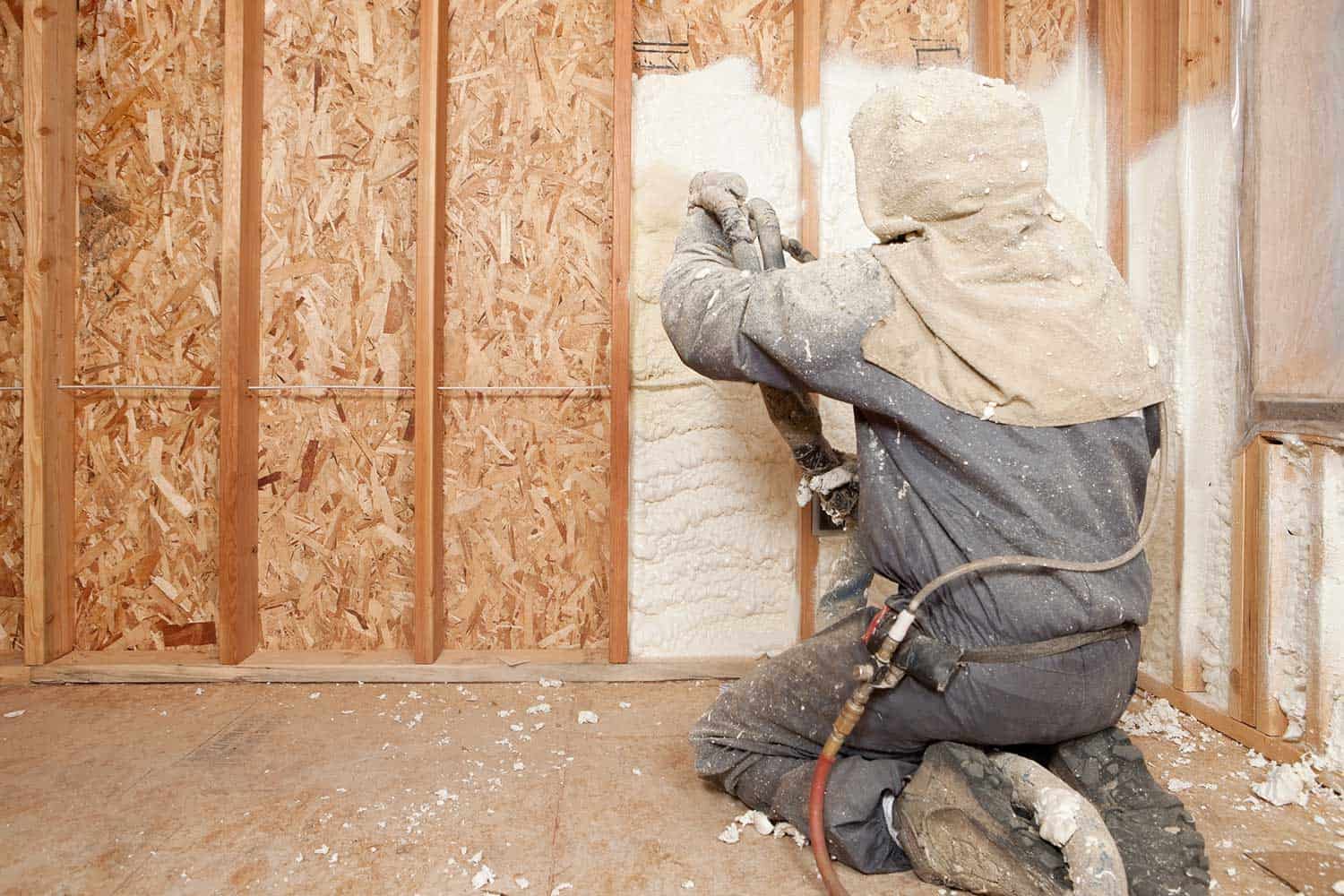Spray foam insulation is an easily workable and reasonably inexpensive alternative to traditional fiberglass and foam board insulation. It conforms easily to the shape of the wall and is relatively easy to install. But, you may be wondering, can you spray foam basement walls? We've done the research to bring you the answer.
You can most certainly spray foam basement walls. The spray foam insulation is sprayed directly onto and adheres to the concrete basement walls. Insulating your basement will make the rooms more comfortable, quieter, and drier. It will also save you money on your energy bills.
As you can already see, spray foaming basement walls is a great option. But what else makes it ideal for the basement? How much does it cost to insulate the basement? In this guide, we'll cover these questions and more. Just keep reading!

Spray Foaming Basement Walls

There are several acceptable material types, but this article will refer to them all simply as "spray foam." Closed-cell and open-cell polyurethane foam are the most common. XPS, EPS, and polyisocyanurate rigid foam are also popular materials.
Closed-cell foam is typically used below ground level while the open-cell foam is for above ground level use. Closed-cell foam is better at preventing leaks and is more resistant to bulk water. However, because it hides leaks, it can sometimes cause mold.
Because spray foam is able to get into all the cracks and crevices of the walls, it provides a tight air and water seal. Spray foam insulation is the best way to turn your basement into a comfortable environment.
Pre-Installation Checklist
Two things need to be done before adding new spray foam insulation. If you have any old insulation, you need to remove it first. Next, you have to make sure your basement is dry and not prone to leaks. If there is a leak, it could cause mold within the insulation and even structural damage. How do you make sure your basement is dry? You have to check for any signs of water entry. If you have any water entry warnings, you'll need to fix the leaks before you can install any insulation.
Installation Process
The installation process for spray foam insulation includes removing old insulation and checking your basement for signs of water-entry and leaks before spraying the open cavity of the walls, the rim joist, and the ceiling with foam insulation. If the drywall is already up, the spray foam will go inside the wall cavity. If you plan to leave your concrete walls exposed, you can use injection foam here, too. Installation is quick, usually taking 4 to 6 hours to complete the installation.
According to contractors, the best approach is to frame the walls first, leaving a gap about 1 ½ inches to 2 inches between the concrete wall and the studs' back. This gap will be filled with foam later. Check your local building codes because, in some areas where termites are a problem, regulations may require a 3-inch high termite inspection strip of bare concrete near the top of the wall.
Many contractors suggest that the wall studs should be furred out at least a quarter of an inch to a half-inch. This way, the spray foam can get behind the stud and prevents thermal bridging, which causes a reduction in the building's overall thermal insulation.
Spray foam can adhere to a concrete wall with foam-compatible adhesive or special plastic fasteners. Each piece of foam's perimeter should be sealed with adhesive, caulk, flashing tape, or extra foam to prevent interior air from reaching the concrete.
What if the walls are already enclosed? No worries! You can drill holes into the drywall where the foam will be injected into the wall cavity. Once the foam is installed, a Styrofoam plug will be put into the holes and then patched with drywall.
How Much Does It Cost To Foam Insulate A Basement?

The average cost to spray foam insulate a basement runs from $2,000 to $8,000. The prices vary depending on:
- The size of the space, including how many rooms are being insulated
- The cost of materials
- Any rebates or discounts that the consumer qualifies for
Closed-cell foam costs are higher than open-cell foam because closed-cell is more water-resistant and better suited for basement environments. However, choose the type of foam that's best for you and your needs.
Is It Worth It To Insulate Basement Walls?
If you live somewhere with cold winters and hot summers, insulating basement walls will almost always save you money on your energy bills. Insulated walls are also more resistant to mold and condensation, which means you save money on those repairs, as well.
Insulation is a large initial investment, but it saves you money in the long run. Most homeowners who insulate their basement see an average savings of 20% on their energy bill in the first year.
What Is The Cheapest Way To Insulate Basement Walls?
Fiberglass insulation may be cheaper initially, but the costs to install and operate spray foam are less expensive in the long run.
If you want to insulate your basement walls, spray foam insulation is an excellent option. It conforms easily to uneven walls, it can be installed through drywall and concrete, and it can cut costs for homeowners on their energy bills. The initial costs may be slightly more expensive than fiberglass, but its benefits outweigh its costs in the long run. Professionals can install it for you or handy DIYers can opt to do it themselves.
In Closing
Now you know all the benefits of using spray foam in your basement! If you're looking for insulation with a tight air and moisture seal, look no further than spray foam. While it may cost a little more upfront than other types of insulation, you'll enjoy the benefits for many years.
Before you go, be sure to check out these other home improvement articles that may be of interest:
